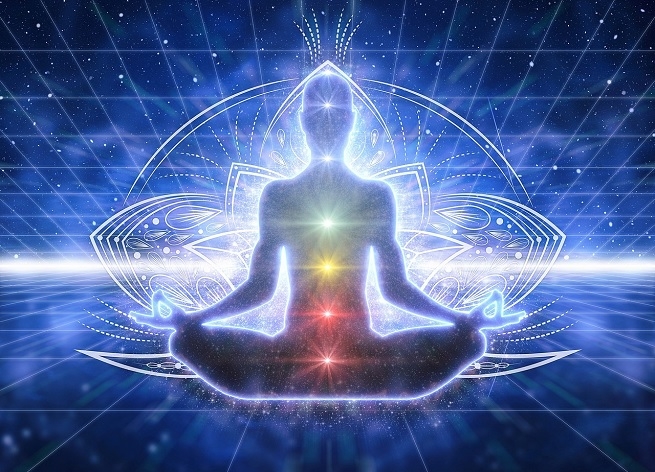Yoga for divine opulence
Date :01-Jun-2025

By DR BHUSHAN KUMAR UPADHYAYA :
T
he tenth chapter of the
Geeta is titled as the Vibhuti
Yoga or the Yoga of opulence
and glories. Continuing his dialogue with Arjuna, Lord Krishna
propounds that even the highly
evolved persons do not know
about the ultimate reality from
which the creation has come into
existence. The Supreme Reality
has no beginning, middle or end.
It is all consciousness from which
emerges one and all including
human thoughts and emotions.
Human mind and intellect are limited, so they cannot grasp the all
pervasive nature of the God principle. So meditating upon the glories of the Supreme Reality, one
can develop the discriminative
knowledge to reach the proper
judgement. All together fifty four
divine glories have been named
in the chapter.
The number of these glories is
endless, but just a few have been
mentioned to give an understanding of the divine opulence.
Soaking the mind into the contemplation of these glories elevates the human consciousness
and leads to bliss. The knowledge
gained through meditating upon
these opulences destroys ignorance and leads to enlightenment
and freedom.
The modern day
Positive Psychology also works on
the same principles. The first glory enumerated is Vishnu. Vishnu
is the symbol of the sustaining
energy of the creation. All the
forces which maintain and run
the universes are under the
supervision of the God called
Vishnu in the Vedic tradition. The
other divine glories are manifested through the sun, the wind and
the moon. The Samaveda is
described as the divine opulence
as it is full of music, rhythm and
melody. Indra, the King of Gods is
another divine glory. Indra symbolises human sense organs also.
The human mind and consciousness are other divine opulences. Lord Shankara who disposes of the beings or things
which have outlived their utility is
another divine glory. Kuber, the
treasurer of wealth, the fire and
Meru mount have been cited as
aspects of divine glories.
The
planet jupiter and Kartikeya, the
commander of the Army of Gods
are other divine glories. The
ocean, the biggest source of
water, Bhrigu,the prominent
sage and OM, the primordial
vibration are the divine glories.
Chanting the divine names, the
Himalayas, the greatest mountain
ranges, the Pipal, the biggest tree,
Chitresh, the prominent demigod
and Kapil, the great spiritual master occupy important places
amongst the divine glories.
The
other divine opulences counted
are Uchchaishrava, the fastest
horse, Airavata, the mightiest elephant, the king, thunderbolt,
Kamdhenu,the divine cow, the
god of love, serpent Vasuki, snake
Ananta, Varun, the water God,
Aryama,the prominent ancestor
Yama, the death God, Prahlada,
the great devotee amongst
demons, the time, the lion, the
king of animals, Garuda,the great
bird, the wind, the great purifier,
Ram, the great warrior, the crocodile, great amongst the aquatic
creatures, the Ganga, the purest
amongst the rivers, the entire creation, spirituality, logic, A sound,
dual compound, endless time, the
creator, death, origin of all, all
feminine qualities, the great Sama
hymn, the Gayatri prosody,
Margashirsha month (November),
spring season, gambling, splendour, victory, resolve, virtue,
Krishna, the hero of the Vrishni
tribe, Arjuna, prominent amongst
the Pandavas, Vyasa, the great
seer, Shukracharya, the great
poet, punishment, silence, conduct, wisdom and knowledge.
It is surprising as to why Lord
Krishna has mentioned gambling
as a divine glory. A gambler has
no control over his greed and as a
result he loses all his wealth and
belongings. Gambling brings suffering to such persons and this is
the punitive way of the divinity to
correct greedy persons. The above
enumeration of the divine opulences indicates that divinity
expresses itself in all that is
noble, virtuous, creative, sustainable, inclusive, all encompassing ,
grand and judicious.

(The writer is Former DG
Police & CG, Homeguards,
Maharashtra)
■